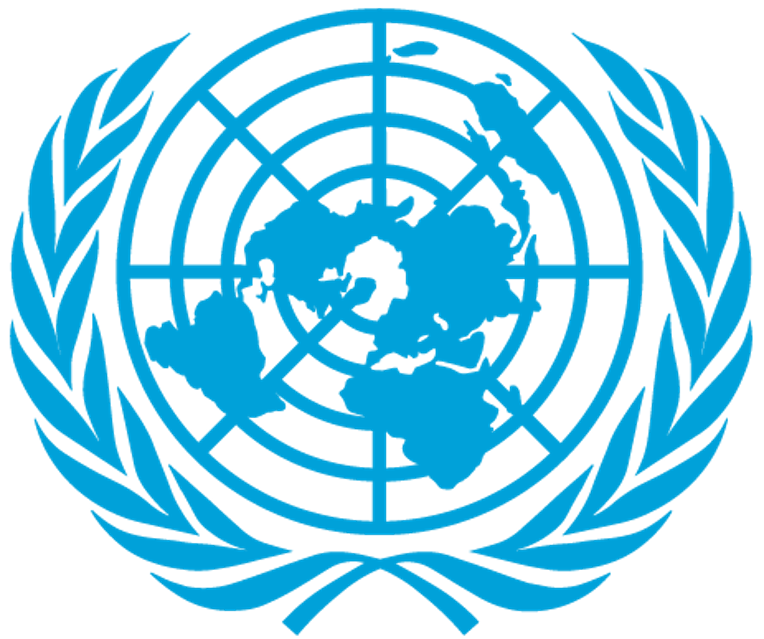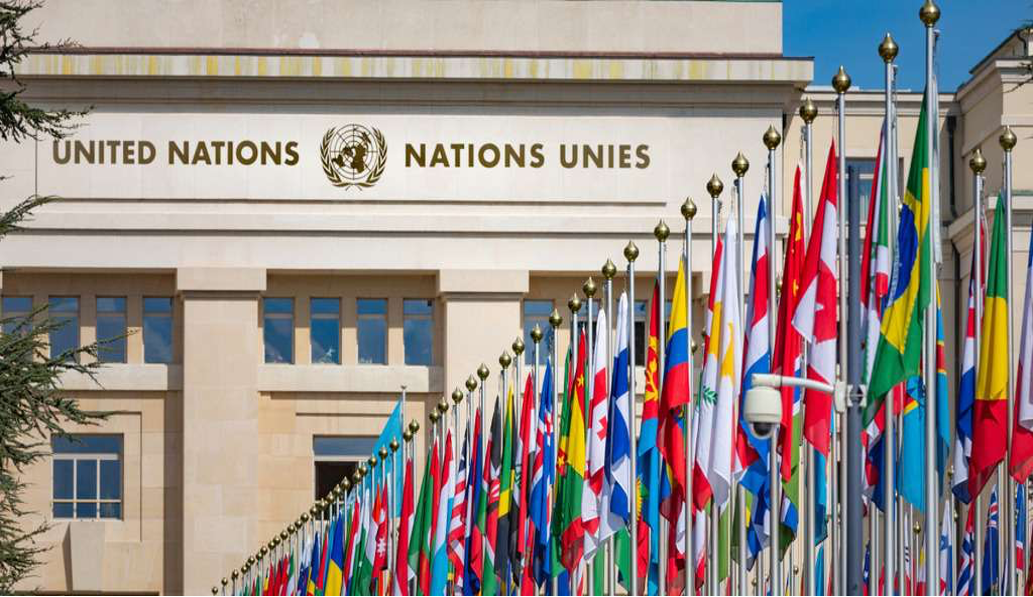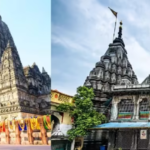What’s in this Article?
- Table of Contents
- Introduction: What is the UN?
- History: Formation and Evolution of the UN.
- Objectives of the United Nations.
- Structure: Principal Organs of the
- Functions: United Nations
- India and the United Nations
- Challenges and limitations of the UN
- Frequently Asked Questions (FAQ’s)
- MCQ’s (UPSC: PYQ’s)
Introduction: What is the UN?
- The United Nations (UN), headquartered in New York City, is an International organization comprising 193-member states.
- Its establishment in 1945 aimed to prevent future global conflicts following World War II.
- Leaders of Allied Governments convened meetings during the World War II, culminating in the creation of the United Nations Organization (UNO), whose charter was signed on October 24,
- The UN operates in six official languages, including Arabic, Chinese, English, French, Russian, and Spanish.
History: Formation and Evolution of the UN
- In 1899, The Hague hosted the International Peace Conference with the aim of developing methods for resolving disputes peacefully, preventing conflicts, and establishing rules for warfare.
- The League of Nations was a multinational organization after World War I.
- Which provided a platform for international dispute resolution.
- Following the war’s conclusion through a series of bilateral armistices, the victorious countries of World War I met in Paris in 1919 to discuss a comprehensive peace settlement.
- He wrote and signed the Treaty of Versailles, which formally ended Germany’s war with the Allied and Allied Powers.
- In January 1920 the League of Nations had 42
- The League of Nations failed to intervene in various wars leading up to World War II,
- With the outbreak of World War II, it became clear that the League had failed to achieve its goal of preventing future world wars.
- After failing to avert World War II, the Yalta Conference agreed in 1945 to establish a new entity to assume responsibility for the League.
- The League dissolved itself during a meeting of the Assembly in 1946 and its services, mandates and assets were handed over to the United Nations.
- The United Nations Conference on International Organization took place in San Francisco in 1945, where representatives from 50 countries signed the United Nations Charter.
- This charter (The UN Charter of 1945), serving as the foundational treaty of the United Nations, established the organization as an inter-governmental body.
Objectives of the United Nations
- The United Nations aims to promote international peace and security by preventing conflicts and resolving disputes through diplomacy and negotiation.
- It strives to uphold human rights, equality, and justice worldwide, fostering cooperation among nations to address global challenges such as poverty, disease, and environmental degradation.
- Through its various agencies and programs, the UN works to provide humanitarian aid, promote sustainable development, and protect vulnerable populations.
- Additionally, it seeks to facilitate dialogue and cooperation among nations to tackle transnational issues such as terrorism, climate change, and pandemics, striving for a more peaceful, just, and sustainable world for all.
Structure: Principal Organs of the UN
- The United Nations is part of the broader UN System, which includes an extensive network of institutions and entities.
- Central to the organization are five principal organs established by the UN Charter:
-
- The General Assembly,
- The Security Council,
- The Economic and Social Council,
- The International Court of Justice (ICJ) and
- The UN Secretariat.
- A sixth principal organ, the Trusteeship Council, suspended its operations on 1 November 1994 upon the independence of Palau; the last remaining UN trustee territory.
- Four of the five principal organs are located at the main UN Headquarters in New York City, while the International Court of Justice is seated in The Hague.
Principal Organs of the UN
- UN General Assembly (Deliberative assembly of all UN member states)
- May resolve non-compulsory recommendations to states or suggestions to the Security Council (UNSC);
- Decides on the admission of new members, following proposal by the UNSC;
- Adopts the budget;
- Elects the non-permanent members of the UNSC; all members of ECOSOC; the UN Secretary-General (following their proposal by the UNSC); and the fifteen judges of the International Court of Justice (ICJ). Each country has one vote.
- UN Secretariat (Administrative organ of the UN)
- Supports the other UN bodies administratively (for example, in the organization of conferences, the writing of reports and studies and the preparation of the budget);
- Its chairperson—the UN Secretary-General—is elected by the General Assembly for a five-year mandate and is the UN’s foremost representative.
- International Court of Justice (Universal court for international law)
- Decides disputes between states that recognize its jurisdiction;
- Issues legal opinions;
- Renders judgment by relative majority. Its fifteen judges are elected by the UN General Assembly for nine-year terms.
- UN Security Council(For international security issues)
- Responsible for the maintenance of international peace and security;
- May adopt compulsory resolutions;
- Has fifteen members: five permanent members with veto power and ten elected members.
- UN Economic and Social Council(For global economic and social affairs)
- Responsible for co-operation between states as regards economic and social matters;
- Co-ordinates co-operation between the UN’s numerous specialized agencies;
- Has 54 members, elected by the General Assembly to serve staggered three-year mandates.
- UN Trusteeship Council (For administering trust territories (currently inactive)
- Was originally designed to manage colonial possessions that were former League of Nations mandates;
- Has been inactive since 1994, when Palau, the last trust territory, attained independence.
Specialized Agencies of UN
- They are working with the UN in accordance with relationship agreements between each organization and the UN.
- FAO
- IFAD
- IMF
- WHO
- WORLD BANK
Funds and Programmes
- Focus on addressing particular humanitarian and development concerns.
- UNDP
- UNEP
- UNICEF
- UN-HABITAT
Related Organizations
- They work in collaboration with the UN to promote international cooperation and achieve common goals.
- IOM
- WTO
- IAEA
- OPCW
Other Entities and Bodies
- These are related to other purposes such as human rights, relief work etc.
- UNHCR
- UNAIDS
- UN WOMEN
- UNRWA
Functions: United Nations
The United Nations (UN) serves various functions aimed at promoting peace, security, development, human rights, and international cooperation.
Some of the key functions of the United Nations include:
- Maintaining Peace and Security: One of the primary functions of the UN is to maintain international peace and security. This is achieved through actions such as peacekeeping missions, conflict resolution, sanctions, and peacebuilding efforts.
- Promoting Human Rights: The UN is committed to promoting and protecting human rights globally. It establishes norms and standards through documents like the Universal Declaration of Human Rights and monitors human rights violations worldwide through agencies like the Office of the High Commissioner for Human Rights.
- Providing Humanitarian Assistance: The UN plays a crucial role in providing humanitarian aid to people affected by natural disasters, conflicts, and other emergencies. Agencies like the World Food Programme (WFP), UNICEF, and the Office for the Coordination of Humanitarian Affairs (OCHA) provide relief efforts, food aid, healthcare, and shelter to those in need.
- Supporting Sustainable Development: The UN promotes sustainable development through initiatives like the Sustainable Development Goals (SDGs), which aim to address global challenges such as poverty, inequality, climate change, and environmental degradation. Agencies like the United Nations Development Programme (UNDP) work towards achieving these goals by providing technical assistance, capacity building, and funding to countries.
- Facilitating International Cooperation: The UN serves as a forum for international cooperation and diplomacy, bringing together member states to address global issues and challenges. It provides a platform for dialogue, negotiation, and consensus-building on various issues, including disarmament, environmental protection, and public health.
- Preventing Conflict and Genocide: The UN works to prevent conflicts and atrocities such as genocide through early warning mechanisms, mediation, and conflict prevention efforts. It also establishes international tribunals and commissions to investigate and prosecute individuals responsible for war crimes and crimes against humanity.
- Promoting Gender Equality: Gender equality and the empowerment of women are central to the work of the UN. The organization promotes women’s rights, participation, and leadership in all aspects of society and works to eliminate discrimination and violence against women and girls.
- Protecting the Environment: The UN addresses global environmental challenges through initiatives like the United Nations Environment Programme (UNEP), which works to promote sustainable environmental management and conservation efforts worldwide.
- Overall, the United Nations plays a critical role in addressing complex global challenges and advancing the collective well-being of humanity through its various functions and agencies.
India and the United Nations
- India was among the founding nations of the United Nations.
- Even prior to gaining independence, India had endorsed the Declaration by the United Nations in 1944 at Washington, D.C., and actively participated in the United Nations Conference on International Organization held in San Francisco from April 25 to June 26, 1945.
- Being one of the original members of the UN, India wholeheartedly upholds the objectives and principles of the organization and has played a significant role in advancing its goals.
- The UN’s presence in India is extensive, boasting the largest field networks worldwide, with numerous offices, programs, and funds currently operational in the country.
- India is a signatory to the United Nations’ 13 sectoral treaties on terrorism. With the goal of establishing a comprehensive legal framework to combat terrorism.
The United Nations (UN) has made significant contributions to the world in various ways:
- The UN has played a crucial role in maintaining global peace by deploying peacekeeping forces to conflict areas, aiding numerous nations in their recovery from violence.
- The International Atomic Energy Agency (IAEA), functioning as the UN’s nuclear watchdog, has established safeguard agreements with more than 180 countries to prevent the spread of nuclear weapons.
- The UN engages in demining efforts across over 30 countries, effectively saving lives on an annual basis.
- Through coordinated efforts facilitated by the UN, nations collaborate on counter-terrorism strategies, resulting in the adoption of the first-ever global policy for combating terrorism.
- The UN’s adoption of the Genocide Convention has provided a framework for countries to prevent and punish acts of genocide.
- A key focus of the UN is enhancing human potential worldwide, exemplified by initiatives such as the Millennium Development Goals, primarily funded through contributions from member states.
- The UN Food and Agriculture Organization (FAO) endeavors to eradicate hunger by advocating for food security across all nations.
- The International Telecommunication Union (ITU) serves as a platform for governments and businesses to collaborate, facilitating the development of global telecommunication networks and infrastructure improvements.
Challenges and limitations of the UN
- While the United Nations (UN) has made significant contributions to global peace, security, development, and human rights, it also faces numerous challenges and limitations:
- Complex Decision-Making Process: The UN’s decision-making process involving its member states can be slow and often hindered by geopolitical interests and power struggles among the Security Council’s permanent members (United States, Russia, China, France, and the United Kingdom).
- Lack of Enforcement Mechanisms: The effectiveness of UN resolutions and decisions is limited by the absence of strong enforcement mechanisms. The Security Council’s ability to enforce decisions, particularly in cases of conflict or human rights violations, is often constrained by veto powers and disagreements among its members.
- Resource Constraints: The UN relies heavily on voluntary contributions from member states, which can lead to funding gaps and limitations in carrying out its mandates effectively. This dependence on voluntary funding can also undermine the UN’s autonomy and impartiality.
- Inadequate Response to Humanitarian Crises: Despite efforts to provide humanitarian assistance, the UN sometimes struggles to respond adequately to humanitarian crises due to bureaucratic inefficiencies, logistical challenges, and funding constraints.
- Security Challenges in Peacekeeping Operations: UN peacekeeping missions often operate in volatile environments where they face security threats, including attacks by armed groups, which can undermine their ability to fulfill their mandates and protect civilians.
- Lack of Representation and Inclusivity: The UN’s decision-making bodies may not fully represent the diversity of its member states or adequately include the voices of marginalized populations, leading to concerns about legitimacy and inclusivity.
- Ineffectiveness in Preventing Conflicts: Despite its mandate to maintain international peace and security, the UN has sometimes been criticized for its inability to prevent conflicts or address root causes of instability in a timely manner.
- Challenges in Addressing Global Issues: The UN faces challenges in addressing complex global issues such as climate change, terrorism, and cyber threats due to the lack of a unified approach among member states and the absence of comprehensive international agreements.
- Political Influence and Selectivity: The UN’s decision-making processes can be influenced by the political agendas of powerful member states, leading to selective action or inaction in addressing certain conflicts or human rights violations.
- Perception of Inefficiency and Irrelevance: Critics argue that the UN’s bureaucratic structure and cumbersome procedures can make it inefficient and slow to respond to emerging crises, leading to perceptions of irrelevance or ineffectiveness in addressing contemporary global challenges.
- Despite these challenges, the UN remains an essential forum for international cooperation and plays a vital role in addressing global issues and promoting peace, security, and development worldwide. Efforts to reform and strengthen the UN system are ongoing to enhance its effectiveness and relevance in the 21st century.
Frequently Asked Questions (FAQ’s)
1. What is the United Nations?
Ans: The United Nations is an international organization founded in 1945 after World War II to promote peace, security, cooperation, and friendly relations among nations. It is composed of 193 member states.
2. What are the main purposes of the UN?
Ans: The main purposes of the UN, as outlined in its charter, include maintaining international peace and security, promoting respect for human rights, fostering social progress, and serving as a center for harmonizing the actions of nations.
3. How is the UN structured?
Ans: The UN has several main organs, including the General Assembly (where all member states are represented), the Security Council (responsible for maintaining peace and security), the Secretariat (headed by the Secretary-General, responsible for administration and coordination), the International Court of Justice (the principal judicial organ), and various specialized agencies and programs.
4. What is the role of the Secretary-General?
Ans: The Secretary-General is the chief administrative officer of the UN, responsible for overseeing its day-to-day operations, managing its staff, and representing the organization in diplomatic matters. The Secretary-General is appointed by the General Assembly upon the recommendation of the Security Council.
5. How are decisions made within the UN?
Ans: Decisions within the UN are made through various processes depending on the organ involved. The General Assembly operates on a one-country-one-vote principle, where decisions are typically made through majority vote. The Security Council, however, holds more significant decision-making power, with five permanent members (China, France, Russia, the United Kingdom, and the United States) having veto power.
6. What is the role of the UN in peacekeeping?
Ans: The UN conducts peacekeeping operations to help countries torn by conflict create the conditions for lasting peace. These operations involve deploying military, police, and civilian personnel to conflict zones to monitor ceasefires, facilitate peace processes, protect civilians, and assist in the disarmament, demobilization, and reintegration of former combatants.
7. How is the UN funded?
Ans: The UN is primarily funded through contributions from its member states, which are assessed based on their ability to pay. These contributions fund the organization’s regular budget, peacekeeping operations, and voluntary programs and agencies.
8. What is the Universal Declaration of Human Rights?
Ans: The Universal Declaration of Human Rights (UDHR) is a landmark document adopted by the UN General Assembly in 1948. It sets out fundamental human rights and freedoms to be universally protected, regardless of race, religion, nationality, or other status.
Previous Year Questions (PYQ’s)
UPSC-Mains
Q: Critically examine the role of WHO in providing global health security during the COVID-19 pandemic. (2020)
Q: ‘Too little cash, too much politics, leaves UNESCO fighting for life.’ Discuss the statement in the light of US’ withdrawal and its accusation of the cultural body as being ‘anti-Israel bias’. (2019)
Q: What are the main functions of the United Nations Economic and Social Council (ECOSOC)? Explain different functional commissions attached to it. (2017)
Q: Mention the advantages of the cultivation of pulse because of which the year 2016 was declared as the International Year of Pulses by the United Nations. (2017)
UPSC-Prelims
Q: With reference to the United Nations General Assembly, consider the following statements 🙁2022)
1. The UN General Assembly can grant observer status to the no non-member States.
2. Inter-governmental organisations can seek observer status in the UN General Assembly.
3. Permanent Observers in General Assembly can the UN maintain missions at the UN headquarters.
Which of the statements given above are correct?
(a) 1 and 2 only
(b) 2 and 3 only
(c) 1 and 3 only
(d) 1, 2 and 3
Ans: d (1, 2 and 3)
Q: With reference to the United Nations Convention on the Law of Sea, consider the following statements:
A coastal state has the right to establish-
1. the breadth of its territorial sea up to a limit not exceeding 12 nautical miles, measured from baseline determined in accordance with the convention.
2. Ships of all states, whether coastal or land-locked, enjoy the right of innocent passage through the territorial sea.
3. The Exclusive Economic Zone shall not extend beyond 200 nautical miles from the baseline from which the breadth of the territorial sea is measured.
Which of the statements given above are correct?
(a) 1 and 2 only
(b) 2 and 3 only
(c) 1 and 3 only
(d) 1, 2 and 3
Ans: d (1, 2 and 3)
Q: Consider the following statements (2021)
Statement– 1: The United Nations Capital Development Fund (UNCDF) and the Arbor Day Foundation have recently recognized Hyderabad as 2020 Tree City of the World.
Statement– 2: Hyderabad was selected for the recognition for a year following its commitment to grow and maintain the urban forests.
Which one of the following is correct in respect of the above statements?
1. Both Statement 1 and Statement 2 are correct and Statement 2 is the correct explanation for Statement 1
2. Both Statement 1 and Statement 2 are correct but Statement 2 is not the correct explanation for Statement 1
3. Statement 1 is correct but Statement 2 is not correct
4. Statement 1 is not correct but Statement 2 is correct
Ans: d (Statement 1 is not correct but Statement 2 is correct)
Disclaimer: The article may contain information pertaining to prior academic years; for further information, visit the exam’s “official or concerned website“.








